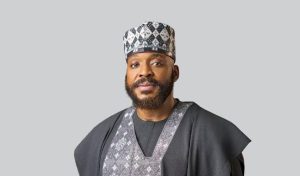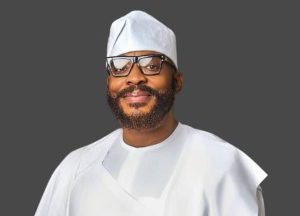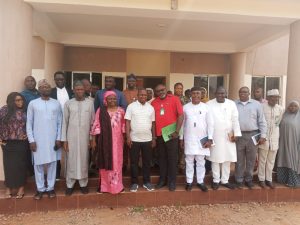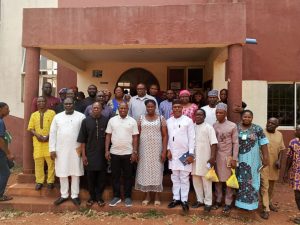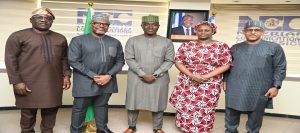Nnanyelugo and the 30 Percent Value-Added Raw Materials Fortune
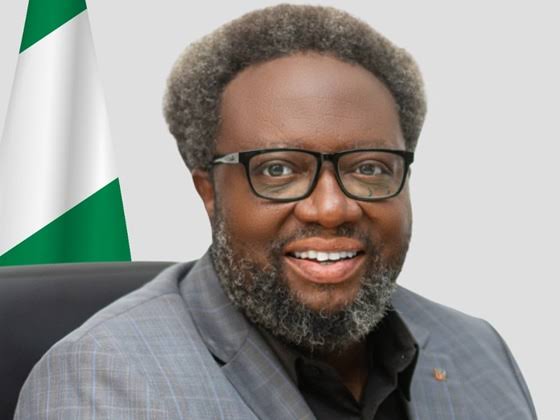
In the heart of a continent brimming with natural wealth yet shackled by economic underdevelopment, Nigeria has taken a bold and historic step toward economic transformation. That step is the proposed law mandating that no raw material be exported from Nigeria without a minimum of 30 percent value addition. It’s a bill that does more than legislate—it philosophically repositions Nigeria in the global economic architecture. And at the center of this pivotal reform is Professor Nnanyelugo Martin Ike-Muonso, the quiet revolutionary at the helm of the Raw Materials Research and Development Council (RMRDC).
In the presence of Senate President Godswill Akpabio, during a recent courtesy visit by the RMRDC leadership, the stakes were made plain. For decades, Nigeria and most of Africa have been exporting raw materials in their most crude and valueless form—cocoa shipped overseas only to be re-imported as chocolate at ten times the price, or lithium and gold sent out without refining, forfeiting trillions in potential income and jobs. The amendment to the RMRDC Act, spearheaded by Senator Onyekachi Nwebonyi, signals a tectonic shift—Nigeria is done being the world’s quarry.
Akpabio’s words echoed with frustration and urgency. “If any of the values were to be added in Nigeria before exporting them,” he said, “we would have had at least, a factory for those chains that would have also created jobs for our people… Technological shifts would have also come in terms of innovations.” Indeed, every ton of unprocessed cocoa exported is a missed opportunity for employment, industrial growth, and technological advancement.
The legislation proposes what should have been a default economic policy for Africa decades ago: raw materials must have at least 30 percent of value added before they leave the country. This is not merely about money—it’s about dignity, agency, and sovereignty. It is an economic firewall against the kind of exploitative globalization that leaves Africa with the crumbs of its own banquet.
Professor Ike-Muonso, a seasoned economist and policy strategist, has long been a voice in the wilderness advocating for industrial policy reforms rooted in research, local content, and innovation. His leadership of the RMRDC has been marked by an unyielding commitment to moving Nigeria away from being a mere supplier of raw inputs to becoming a full participant in global production networks. This amendment is his—and Nigeria’s—breakthrough moment.
The 30 percent clause is not just legislative jargon. It is a moral compass, as Akpabio rightly noted, for an entire continent. It draws a line in the sand for countries that have for too long exported prosperity and imported poverty. For every barrel of oil refined abroad, every car battery made from African lithium, and every textile sewn from Nigerian cotton abroad, we’ve paid a price in underemployment, stunted innovation, and dependency.
Of course, legislation alone is not a magic wand. Implementation will be the true battlefield. The Council must embark on a nationwide industrial sensitization campaign. Curriculums must evolve to include raw material science, and technical colleges must be revamped to teach the value chain economy from farm to factory. And crucially, enforcement mechanisms must be robust enough to stop the smuggling and under-reporting that undermine policies like this.
President Tinubu, upon signing this bill into law, would not just be amending an Act—he would be rewriting Nigeria’s economic future. The bill aligns perfectly with the “Renewed Hope Agenda” of his administration, offering real, tangible hope in the form of jobs, innovation, and industrial independence.
This law could be Nigeria’s equivalent of South Korea’s post-war industrial policy or China’s Special Economic Zones—strategic policy choices that turned developing economies into global powerhouses. The difference? Nigeria has the raw materials, the human capital, and now, the legal framework. All that remains is political will and execution.
As Nigeria prepares to host the Africa Raw Materials Summit, it will not do so as a beggar, but as a leader. With the 30 percent value-added benchmark, the country has drawn a roadmap not just for itself but for Africa. It has declared that the age of raw export is over. The age of raw material transformation is here.
And at the center of it all stands Nnanyelugo Martin Ike-Muonso—a technocrat with a vision, the council he leads, and a legislative body finally waking up to the potential of Nigeria’s true wealth: not just what lies beneath the ground, but what we choose to do with it.
Abdullahi O Haruna Haruspice is a public policy analyst and commentator.


